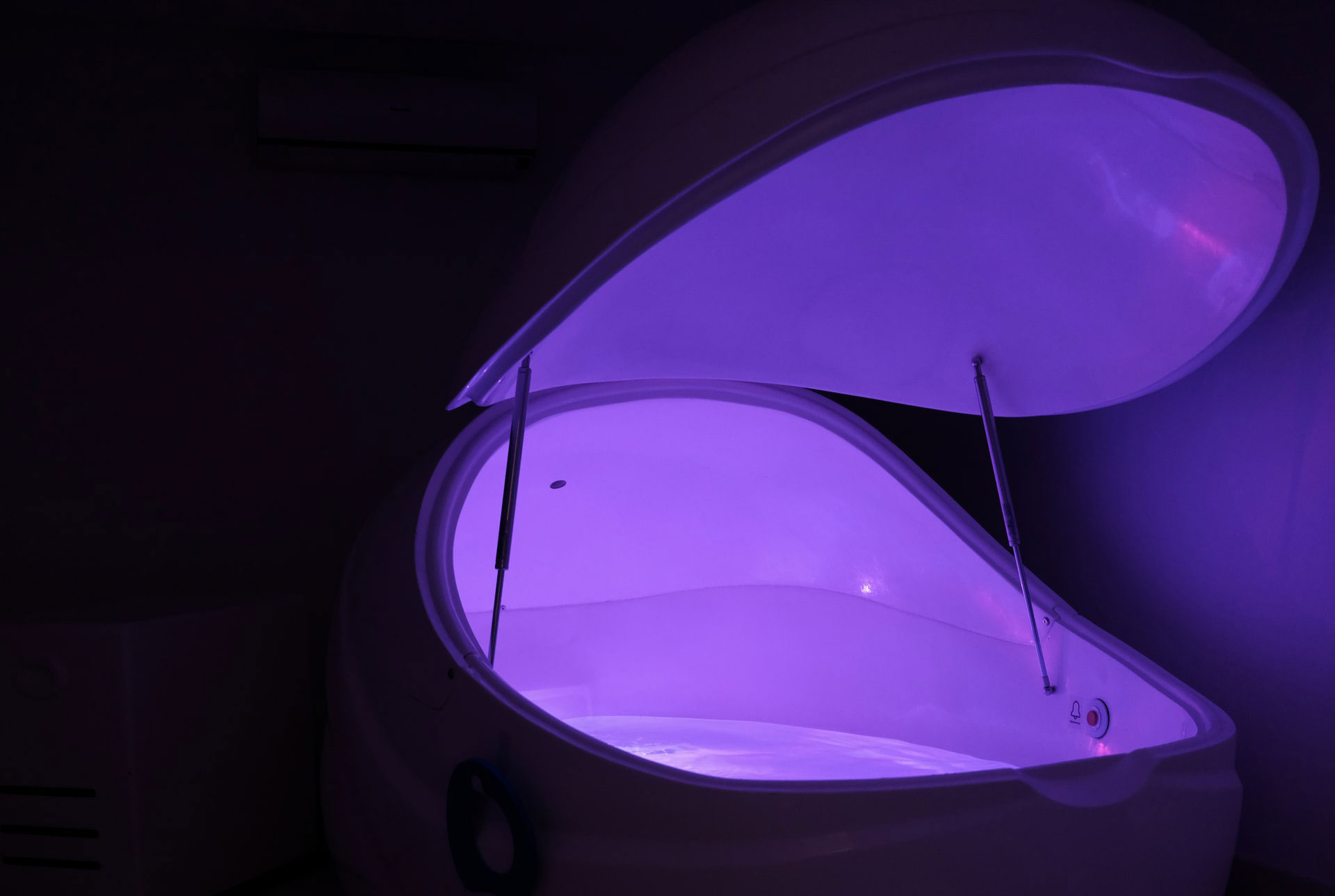Are you thinking about using floatation therapy? Floatation therapy, also sometimes known as sensory deprivation tanks, can help with both physical and mental wellbeing. We at Seek a Therapy want to help answer your questions and concerns surrounding floatation therapy in order to help you select the right therapy for you and on this page we have included some of the most common questions a person may have before attending their first float experience.
What Is Floatation Therapy?
A sensory deprivation tank, also called an isolation tank or flotation tank, is used for restricted environmental stimulation therapy (REST). It is a dark, soundproof tank that is filled with a foot or less of salt water.
A floatation tank is filled with water that is heated to skin temperature and also contains a deep saturation of Epsom salt (magnesium sulfate). This is the element that causes your body to float in the water, providing buoyancy so you float more easily.
You can enter the tank nude or in a swimming costume and are cut off from all outside stimulation. This includes sounds, sights, and gravity when the tank’s lid or door is closed ( you can leave the lid open although, for the best experience, it is recommended to be shut.)
As you float weightlessly in the silence and darkness, the brain is supposed to enter into a deeply relaxed state, the theta brain wave state.
Sensory deprivation tank therapy is said to have many benefits on the brain, ranging from enhanced creativity, mental clarity & alertness, reduced anxiety, deeper meditation, reduced stress, expanded awareness, improved sleep, accelerated learning and promotes deep relaxation.
What to Expect From Floatation Therapy
It is recommended before floating not to drink coffee for two hours before your session (you will find it harder to settle in the tank). It is also advisable not to shave your face or legs as this can irritate your skin. Some float. centres provide Vaseline in your room to cover small scratches and grazes as the tank is full of salt which can sting open wounds.
If you wear contact lenses, it is also advised to bring your lense-box. Other than that, centres often provide everything you need (towels, robes, earplugs, body wash/shampoo, hairdryer, etc. and we even have a selection of herbal tea’s afterwards in our post-float area).
You are advised to close the lid of the float pods but you are totally in control of this.
It is advisable to not wear any clothes for the optimum experience but it is fine if you feel more comfortable in your swimwear.
Your pod is usually private with a locked door and a separate shower for your privacy. Once you step into the pod, get comfortable and press the light on the pod the timer will begin and the light within the pod will turn off. You will then be able to lay backwards in the water and find your centre of gravity as the warmth of the salt water surrounds you. You will then have one hour to enjoy the enclosed environment.
Benefits of Floatation Therapy
How Much Does A Typical Float Session Cost?
A Float Therapy ( and we have several in our directory in the UK, USA, Europe and Asia) costs can vary and can range from £40/$50 per session and sometimes can go upwards of £80/$110. It can occasionally be more depending upon the location. The session lasts for about.1 hour on average.
Want to Know What it Was Like To Float?
I am John, the founder of Seek A Therapy and I have had several floats. I wrote about my first floatation therapy experience here so can get a better understanding of what it may be like for you as well.
How Many Floats Will I Need?
You should notice a considerable difference in your well-being even after the first float. It is recommended by most float centres to float once a week or once every fortnight. Consistent use of floating is believed to be very effective at reducing stress, anxiety and depression.
What If It Doesn’t Work For Me?
First of all, don’t worry!
If you think floatation isn’t the right therapy for you don’t worry. There are many, many different types of therapy that can help and floatation therapy is only one. Use our therapy directory to find a different therapy, you may find hypnotherapy works better or possibly some holistic treatment. The key is not to think this is your only option.
Floatation Therapy For Mental Health
Search the play therapists registered in our database
Please note: This information should not replace professional medical advice, it is purely for informational purposes. At all times when you are in crisis please first seek help from your GP or another medical professional. Thank you

